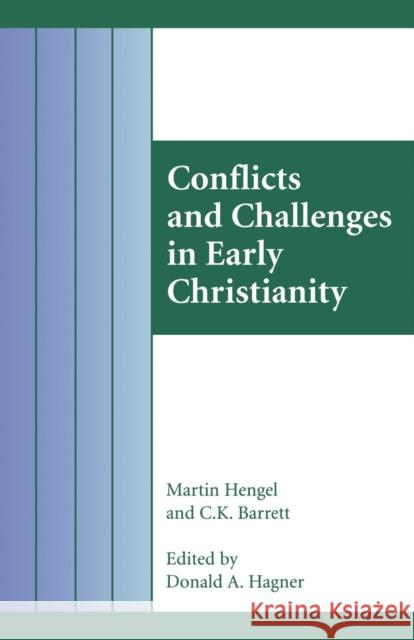Conflicts and Challenges in Early Christianity » książka
Conflicts and Challenges in Early Christianity
ISBN-13: 9781563382918 / Angielski / Miękka / 1999 / 112 str.
These seminal essays by two leading New Testament scholars of our day focus on the interface between Judaism and Christianity in the New Testament.
Professor Hengel writes in a broad and incisive manner on "Early Christianity as a Jewish-Messianic Universalist Movement." He argues that Christianity grew entirely out of Jewish soil and that pagan influences in the New Testament were mediated through Hellenistic Judaism. With an increasing number of Jewish scholars, he therefore contends that the New Testament must be considered an important source for our knowledge of ancient Judaism. In a final portion of his essay, he comments in some detail on "the final separation" of Christianity and Judaism.
Professor Barrett's "Paul: Councils and Controversies" addresses a more specific topic, though one with wide-ranging implications. His focus is the council described in Galatians 2 and Acts 15. What is the gospel of Jesus Christ for Jews and what is it for the Gentiles of the Pauline mission? Barrett explores the historical circumstances and the theological issues at stake. He traces the weakness of the initial compromise agreement between Paul and Peter to take the gospel to the uncircumcision and the circumcision respectively, as well as the significance of the later compromise decree of the council that made minimal demands upon the Gentiles. The inadequacy of both approaches is found in their failure to refer to the center or core of the gospel, that is, to Jesus Christ.
A brief concluding chapter draws together some of the essays' themes, by summarizing responses to them by Fuller Seminary's New Testament department and proposing prospects for future discussion. An annotated bibliography is also included.
Donald A. Hagner is George Eldon Ladd Professor of New Testament at Fuller Theological Seminary.











